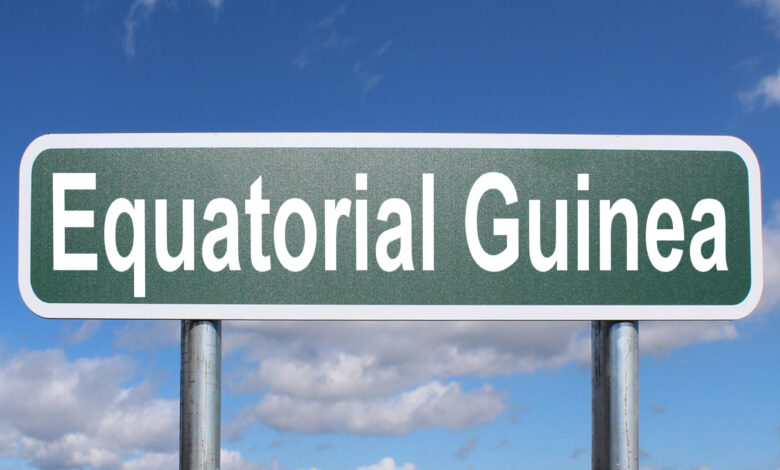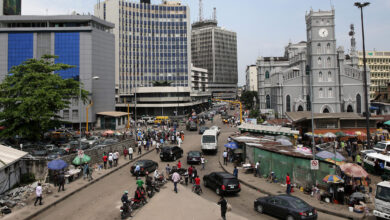Exploring Equatorial Guinea Facts, History, Culture & Travel – Africa Facts Zone
A Hidden Treasure of Africa

Economy of Equatorial Guinea: Dependent on petroleum and facing extreme poverty
GDP: $12.142 billion (nominal, 2019 est.) $28.970 billion (PPP, 2019 est.)
Main Industries: Petroleum, fishing, saw-milling, natural gas
GDP per Capita: $8,927 (nominal, 2019 est.) $21,300 (PPP, 2019 est.)
Population below the Poverty Line: 2/3 of the population (2020)
Human Development Index: 0.588 medium (2018) (144th rank)
Unemployment: 22.3% (2009)
GDP by Sector: Agriculture: 4.6%, Industry: 87.3%, Services: 8.1% (2013 est.)
Equatorial Guinea, a small yet fascinating country located on the west coast of Africa, is often overlooked in discussions about African nations.
With its rich history, diverse culture, and significant natural resources, this country deserves a closer look. In this article, we will delve into the various aspects of Equatorial Guinea, from its geography and history to its economy and culture, providing a comprehensive overview that captures the essence of this unique nation.
Geography: A Diverse Landscape
Equatorial Guinea consists of two main parts: the mainland, known as Río Muni, and several islands, the most prominent of which is Bioko Island, where the capital, Malabo, is located.
Key Geographical Features
- Mainland (Río Muni): Bordered by Cameroon to the north and Gabon to the south and east, Río Muni features a coastal plain that transitions into hilly terrain and plateaus. The Mbini River, which flows through the region, is a vital waterway despite being non-navigable beyond a certain point.
- Islands: Bioko Island, the largest, is home to volcanic landscapes and lush vegetation. The other islands, including Annobón and the Elobey Islands, add to the country’s geographical diversity.
- Climate: The country experiences a tropical climate characterized by high humidity and significant rainfall, particularly in the coastal areas.
A Brief Historical Overview
Equatorial Guinea has a rich and tumultuous history marked by colonialism, dictatorship, and economic transformation.
Colonial Era
- Spanish Colonization: The islands were first sighted by Portuguese explorers in the 15th century but were ceded to Spain in the late 18th century. Spain established a colony known as Spanish Guinea, which lasted until the mid-20th century.
- Independence: Equatorial Guinea gained independence from Spain on October 12, 1968, becoming the first African country to do so from colonial rule.
Also Read: The Democratic Republic of the Congo (DRC) Facts, History, Culture & Travel – Africa Facts Zone
Post-Independence Turmoil
- Dictatorship: The first president, Francisco Macías Nguema, ruled with an iron fist, leading to widespread human rights abuses and a mass exodus of citizens. His nephew, Teodoro Obiang Nguema Mbasogo, overthrew him in 1979 and has remained in power ever since, making him one of Africa’s longest-serving leaders.
- Recent Developments: Over the years, Equatorial Guinea has faced numerous challenges, including political repression, economic mismanagement, and allegations of corruption. Despite its wealth from oil, a significant portion of the population lives in poverty.
- Economy: The Oil Boom and Its Challenges
Equatorial Guinea is rich in natural resources, particularly oil, which has transformed its economy since the 1990s.
Oil Production
- Discovery and Growth: The discovery of oil in the mid-1990s turned Equatorial Guinea into one of Africa’s largest oil producers. The economy boomed, attracting foreign investment and leading to rapid urbanization.
- Current Challenges: However, the country now faces declining oil production, with output dropping by 20% from its peak. This decline has raised concerns about the sustainability of the economy, particularly as ExxonMobil plans to withdraw from the country.
Economic Diversification Efforts
- Beyond Oil: The government has recognized the need to diversify its economy, focusing on agriculture, tourism, and infrastructure development. Projects like the construction of a bridge linking Equatorial Guinea to Cameroon aim to enhance trade and economic cooperation.
- Cultural Life: A Mosaic of Traditions
Equatorial Guinea is a melting pot of cultures influenced by its indigenous populations and colonial history.
Languages - Official Languages: Spanish, French, and Portuguese are the official languages, reflecting the country’s colonial past and its efforts to engage with the international community.
Cultural Practices
- Festivals and Traditions: The country is known for its vibrant festivals, music, and dance, which play a crucial role in community life. Traditional ceremonies often feature colourful attire and rhythmic drumming.
- Cuisine: Equatorial Guinean cuisine is diverse, with staples including cassava, plantains, and seafood. The influence of Spanish cuisine is evident in many dishes, showcasing the country’s culinary heritage.
- Political Landscape: Governance and Human Rights
The political environment in Equatorial Guinea has been characterized by authoritarian rule and limited political freedoms.
Also Read: Exploring the Enigmatic Comoros Facts, History, Culture & Travel – Africa Facts Zone
Current Government
- Leadership: Teodoro Obiang Nguema Mbasogo has maintained a tight grip on power, with little tolerance for dissent. His government has been accused of human rights violations and suppressing freedom of expression.
- Elections: Despite holding elections, the credibility of the electoral process is often questioned, with allegations of fraud and intimidation against opposition parties.
Human Rights Concerns
- Repression: Human rights organizations have consistently criticized the government for its treatment of political opponents and journalists, leading to a climate of fear and repression.
Conclusion: The Future of Equatorial Guinea
Equatorial Guinea stands at a crossroads, grappling with the challenges of governance, economic sustainability, and social equity.
While its rich natural resources offer potential for growth, the country must address its political and economic issues to secure a better future for its citizens.
As we explore Equatorial Guinea’s complexities, it becomes clear that this small nation holds significant potential that remains largely untapped.
FAQs About Equatorial Guinea
What is the capital of Equatorial Guinea?
The capital of Equatorial Guinea is Malabo, located on Bioko Island.
What languages are spoken in Equatorial Guinea?
The official languages are Spanish, French, and Portuguese.
When did Equatorial Guinea gain independence?
Equatorial Guinea gained independence from Spain on October 12, 1968.
What is the main economic driver in Equatorial Guinea?
Oil production is the main economic driver, although efforts are being made to diversify the economy.
Who is the current president of Equatorial Guinea?
Teodoro Obiang Nguema Mbasogo has been the president since 1979.
What are some traditional dishes in Equatorial Guinea?
Common dishes include cassava, plantains, and various seafood preparations.
What are the major human rights issues in Equatorial Guinea?
The government has been criticized for political repression, lack of freedom of expression, and human rights violations. By understanding Equatorial Guinea’s complexities, we can appreciate its unique position in Africa and its potential for the future.





